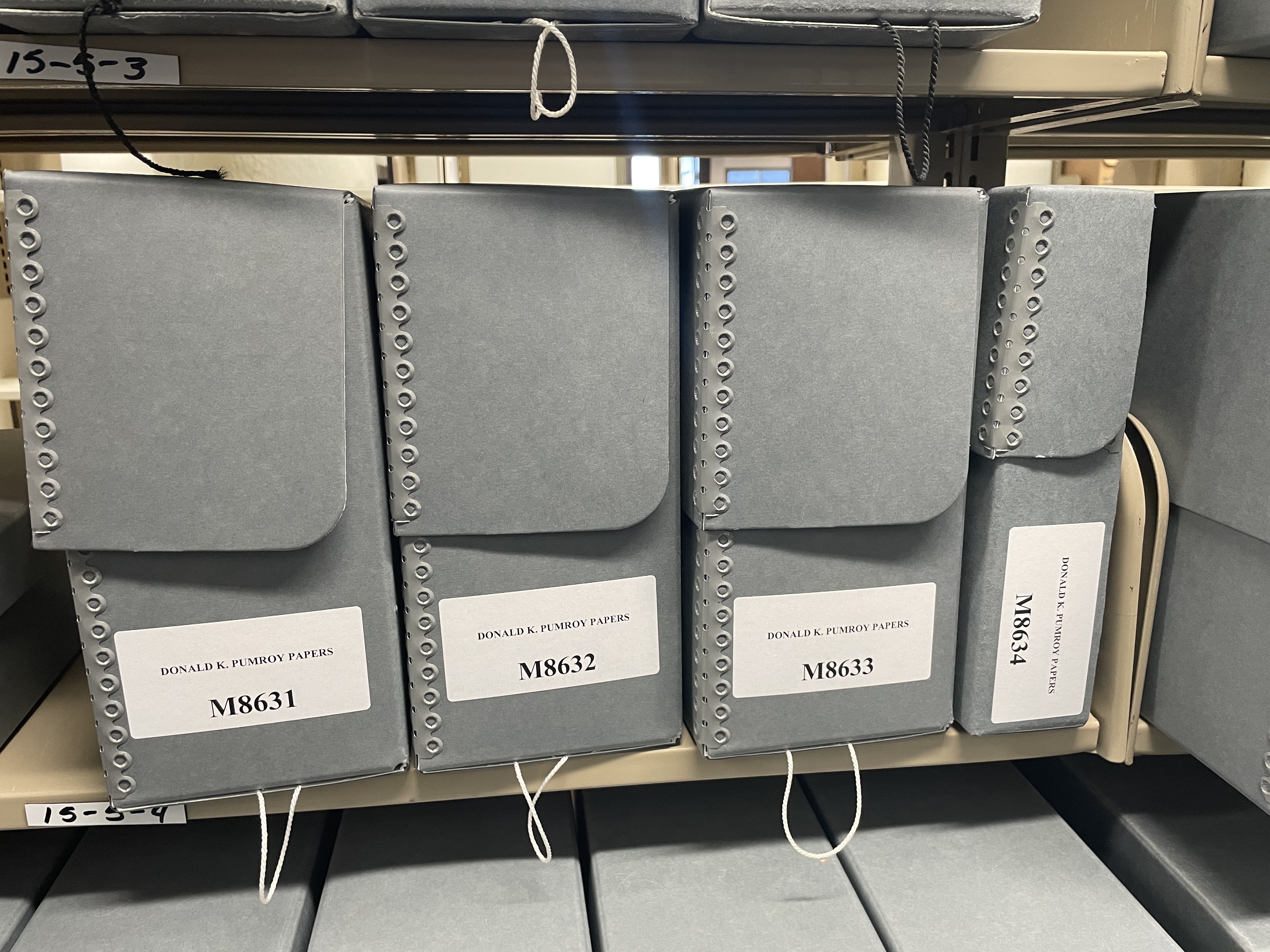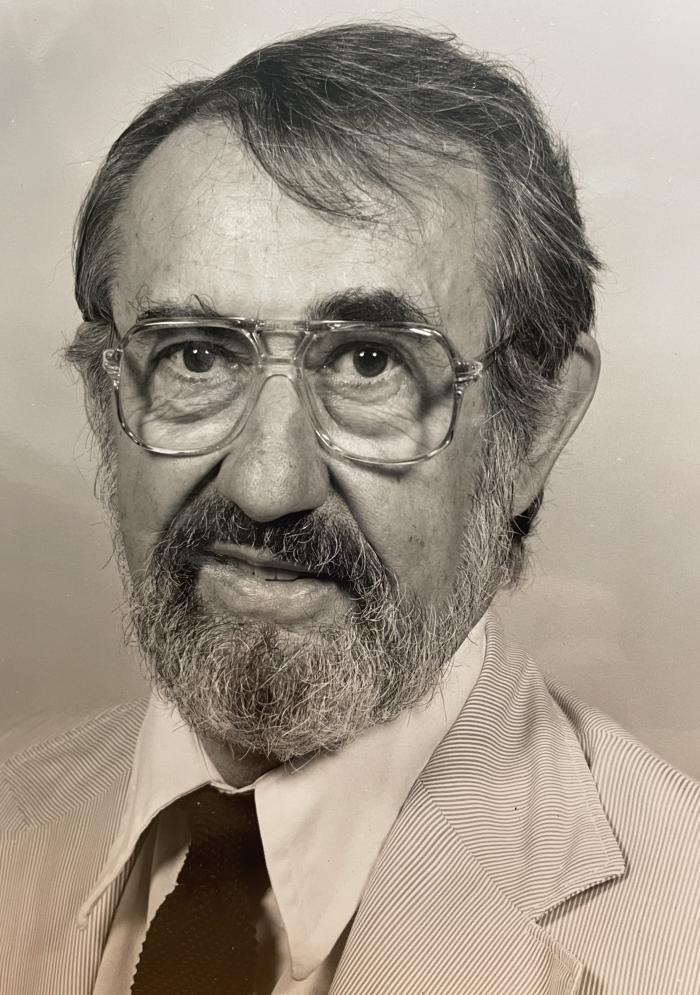Archiving a Lasting Legacy: Dr. Donald Pumroy
Though he passed away in 2014, the findings, research and legacy of Professor Emeritus Donald Pumroy will be celebrated and studied long into the future, thanks to an archival project at the University of Akron, in Ohio.
A noted leader in the field of behavioral psychology, Pumroy helped to build what is now the University of Maryland’s Counseling Psychology program, a collaboration between the College of Education and the College of Behavioral and Social Sciences. The program is currently ranked as the #1 graduate program of its kind in the nation by U.S. News & World Report.
Today, Pumroy’s papers and materials are housed at the University of Akron’s Drs. Nicholas and Dorothy Cummings Center for the History of Psychology. The Center is affiliated with the Smithsonian Institution.
Pumroy is well-remembered by his colleague, Dr. Judy Blumenthal.
“It was a profound moment for me when I learned that the science of applied behavior analysis can enrich your life quickly and simply,” Blumenthal said. “Dr. Pumroy’s life work is encapsulated in his collection at the Center for the History of Psychology; he took perceptions, feelings, and emotional words like attitude, self-concept, and happiness, and operationally defined them in behavioral terms. His work is historical and progressive. ‘Progress is being made’ was one of his mantras.”
An erudite professor, Pumroy demonstrated excellence in teaching, and his reputation preceded him in this; Blumenthal said that students vied over the years to be his Teaching Assistants.
In addition, Pumroy developed successful students under his leadership as director of what was then known as UMD’s School Psychology Program.
One example of a successful student is Dr. Marcia D. Smith, who has a school named after her, the Marcia D. Smith School for Autism, in Gaithersburg, Maryland. Dr. Smith credits Pumroy for her education in applied behavior analysis, and for his pioneering work in applying behavior analysis to children and adults with challenging behavior.
Pumroy served both as the president of the Maryland Psychological Association and the president of the Maryland Association of School Psychologists. Additionally, he served as a member, then chairman, of the Maryland Board of Examiners of Psychologists.

Cummings Center Archivist Rhonda Rinehart took on the diligent, detailed work of organizing Pumroy’s writings and collections, and making them available to the public. In doing so, she forged a connection with Blumenthal, with whom she communicated, and also with Pumroy in a unique way.
“Through talking with Dr. Blumenthal, and later through organizing Dr. Pumroy’s materials, I learned of his great interest in humanity and the human condition,” Rinehart said. “This showed not only through his work in behavior modification, but through his compassion toward human beings through all stages of life, from his studies in child psychology to his classes for older adults to help them navigate the world in their later years.”
Pumroy collaborated with his wife, Shirley Spence Pumroy. Together, they authored “Modern Childrearing, A Behavioral Approach” (Burnham, 1978). They also shared a private practice, Associates for Behaviour Change, in Hyattsville, Maryland.
In addition, Pumroy had a private practice in Northumberland, Virginia, where he worked with the school system.
Pumroy’s research was far-reaching, and his archives outline his many accomplishments. Of note:
- He was the first psychologist to apply behavioral principles to a child and publish those results: (D.K. Pumroy (1965). A New Approach to Treating Parent-Child Problems. Paper presented at the meeting of the American Psychological Association, Chicago, Il.);
- He is credited as being the first person to use behavior modification in toilet training (Odell, S. (1974). Training parents in behavior modification: a review. Psychological Bulletin, vol 81, #7, 418-433);
- Pumroy developed an instrument that is used globally to measure parent attitudes toward child rearing (instrument entitled, Maryland Parent Attitude Survey);
- He presented papers on Active Shooter Behaviors (Association for Behavior Analysis Annual Conventions 2013/14);
- Pumroy wrote a story on concussions, entitled, Year 2037: What Happened to Football?)
The broad range of Pumroy’s interests, works, writings and tools now archived at the Center for the History of Psychology will benefit future scholars and practitioners.
Though she never met Pumroy, Rinehart’s work reviewing and archiving his writings and materials led to a deep appreciation for his perspective and contributions.
“Having the privilege of making Dr. Pumroy’s materials available for research, I came upon a short paper written by him that clearly demonstrated his ability to understand where the human condition would lead. The paper was about the need for a special sign language for drivers so they could understand one another when something unintentional went wrong; a way to say, ‘I’m sorry, I didn't mean to do that’ or ‘I understand, no harm done.’ Since driving is a complex action, and there is plenty of room for mistakes, Dr. Pumroy anticipated the need for an understanding of these mistakes by both parties when driving,” Rinehart said. “It is something that is even more relevant today when there are more drivers, more mistakes, more bad feelings. When I read this paper, I was immediately struck by Dr. Pumroy's compassion and his ability to see beyond the problem at hand for a solution.”
Blumenthal said, “everyone Don met was made to feel special and important. He instinctively knew how to get to the core of the behavior even with strangers, always making someone feel good about themselves in minutes.”
The Donald K. Pumroy papers at the Center for the History of Psychology can be accessed by contacting the Center’s Records & Reference Services Manager by phone at 330-972-6474, to make an appointment or to request materials.
The finding aid for the Donald K. Pumroy papers can be viewed here or here.
Published on Thu, Sep 25, 2025 - 10:19AM




